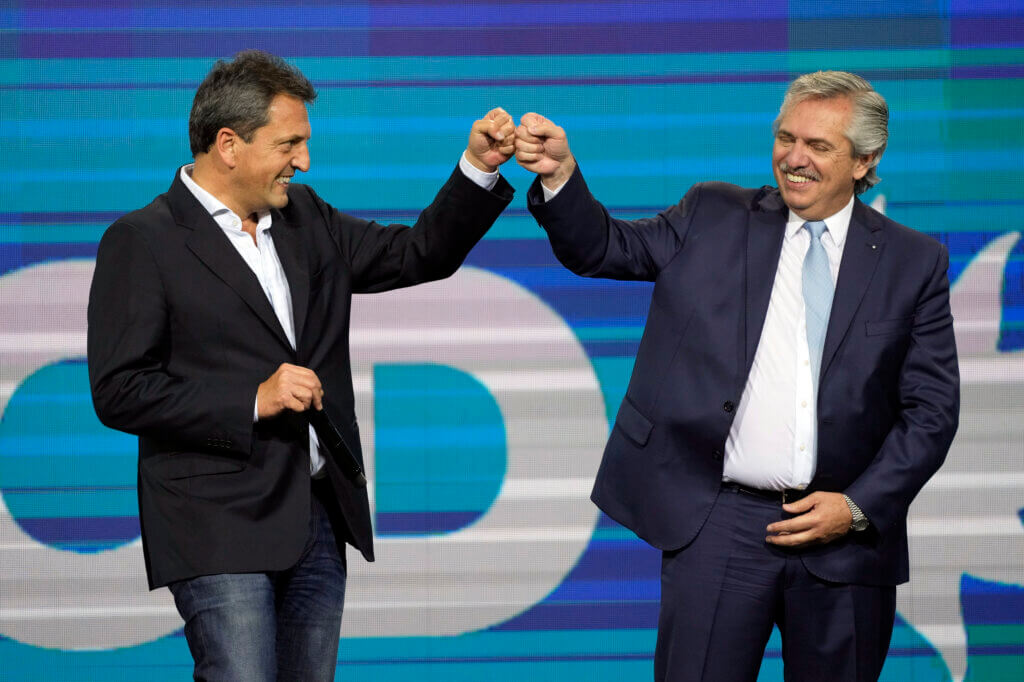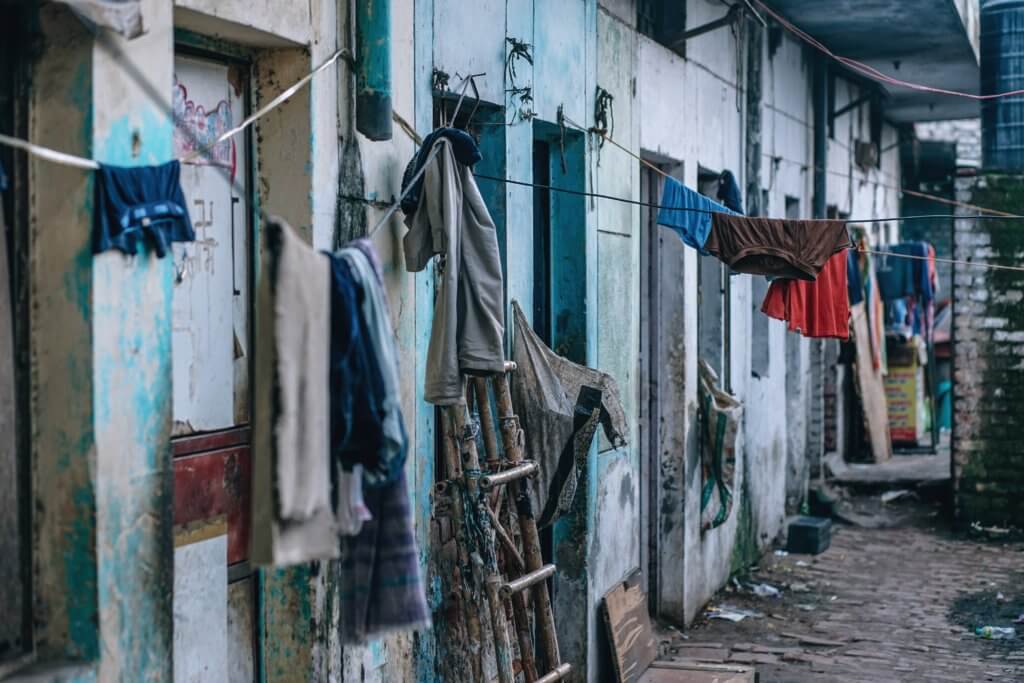Buenos Aires, Argentina — In the early months of 2025, Javier Milei seemed to be facing a landslide in this year’s midterms. Now, five weeks before the election, Argentina’s president is enduring a triple crisis. He is facing street protests against his budget cuts, a hostile Congress is overturning his vetoes every week, and the economy seems to be taking a turn for the worse as the peso weakens and uncertainty strikes the market. And the President is now turning to the United States for help.
Javier Milei will travel to the United States on Monday, September 22, to attend the U.N. General Assembly. He also plans to meet with International Monetary Fund officials to seek support for his program and with President Donald Trump to discuss possible Treasury aid for Argentina’s economic plan.
Talks are already underway, as confirmed by Treasury Secretary Scott Bessent on an X thread. “Argentina is a systemically important U.S. ally in Latin America, and the @USTreasury stands ready to do what is needed within its mandate to support Argentina. All options for stabilization are on the table,” Bessent posted on Monday.

“These options may include, but are not limited to, swap lines, direct currency purchases, and purchases of U.S. dollar-denominated government debt from Treasury’s Exchange Stabilization Fund. Opportunities for private investment remain expansive, and Argentina will be Great Again,” he added.
“We remain confident that President @JMilei’s support for fiscal discipline and pro-growth reforms are necessary to break Argentina’s long history of decline. My April comments make clear our commitment to Argentina’s people and to President Milei,” Bessent concluded.
The message was followed by celebratory posts from President Javier Milei, Economy Minister Luis Caputo and other Argentine officials. Local bonds soared and the currency strengthened as markets opened minutes later. An earlier announcement cutting tariffs on agricultural exports to zero until October 31 also was welcomed by investors.
Details on the agreement between Argentina and the U.S. are yet to be revealed. Foreign Minister Gerardo Werthein dispelled rumours mentioning a $30 billion dollar loan. “There has never been serious conversations about a loan of that magnitude,” he told Radio Mitre.
Milei’s triple crisis
Before this week, Congress had increasingly turned hostile to Milei’s vetoes. Both chambers recently approved measures to boost spending for universities, people with disabilities and public hospitals — all areas where the president had made cuts — and are now moving to override the presidential vetoes.
On September 17, the House of Representatives rejected Milei’s vetoes on funding for universities and public hospitals. A day later, the Senate voted against his veto of a bill to automatically distribute more funds to each of Argentina’s 24 provinces.
Only a law increasing spending for people with disabilities, with little impact on the budget, has passed so far despite Milei’s veto. Still, Congress’s actions are a strong political signal against the president’s austerity policies.
While his political party, La Libertad Avanza, will expand its representation after the October 26 election, the government will not have its own majority and will still need allies to pass initiatives. A bill to limit presidential emergency decrees, known as DNUs, could further weaken Milei’s ability to govern without legislative support.
The president now depends on his relationships with provincial governors, who are also his rivals in the midterms. La Libertad Avanza allied with five of them but clashed with the other 19 by competing against them in the election, a strategy driven by the president’s sister and top advisor, Karina Milei.
Read More: Karina Milei rises as Javier Milei’s main advisor and kingmaker ahead of Argentina’s elections
Those governors are now less likely to work with Milei on passing the 2026 budget, which he needs to reassure investors and markets. Because of the electoral competition, the budget is unlikely to be debated before October 26.
La Libertad Avanza’s surprising defeat in Buenos Aires province on Sept. 7 also weakened Milei’s position. That election only determined seats in the local legislature, and polls still point to a likely libertarian victory in October. Still, the loss has hurt his prospects and given markets a pessimistic outlook.
A weaker peso and more uncertainty
Argentina’s financial program has also weakened in recent months, with interest rates rising to keep the currency under control. The exchange rate climbed from 1,200 pesos per dollar in early July to above 1,500 in mid-September. That level breached the ceiling set in the government’s April agreement with the International Monetary Fund (IMF), which allows the Central Bank to sell reserves to support the peso.
While this may give the government temporary relief, it raises doubts about its ability to meet foreign debt payments in the coming months. As a result, Argentina’s bonds fell further this week, posting losses of 20% to 30% over the past month.
Argentina’s country risk index, compiled by MSCI, rose above 1,500 basis points, complicating debt rollover. However, while this may give the government temporary relief, it raises doubts about its ability to meet foreign debt payments in the coming months. As a result, Argentina’s bonds fell further last week, posting losses of 20% to 30% over the past month.
Economy Minister Luis Caputo said the government still intends to honor its debt.
“On the economic team, we always work while considering undesired scenarios. This is no exception. It doesn’t catch us by surprise. For months now, we’ve been working on different alternatives. As always, we’ll only announce something once we know it’s finalized. But it’s needless to say that we’ll honor all the debts, just as we’ve been doing since we took office—even with far fewer resources than we have today”, Caputo wrote on X.
Caputo also defended the exchange rate ceiling, saying the Central Bank would sell “up to the last dollar” to support the peso. “There are enough dollars for everyone,” Caputo said on Three Anchors, a show on the libertarian streaming channel Carajo. He was referring to a $20 billion IMF loan, of which about $14 billion has already been paid to the Central Bank
More protests, worse polling
President Milei has seen his polling numbers decline in recent months too, likely due to the worsening economy.
His approval rating stands at 42.4% and disapproval at 53.7%, according to a September Latam Pulse survey by Bloomberg and Atlas Intel. Disapproval rose from 44.1% in June.
As Congress debated Milei’s veto of increased university spending, thousands took to the streets in Buenos Aires on September 17 for the Federal University March. The protest, backed by social movements and leftist parties, also demanded more funds for public health and disability programs.
Crowds cheered when the House of Representatives overwhelmingly rejected Milei’s veto, voting 180-60 in favor of the original bill. The Security Ministry chose not to enforce its usual protocol against demonstrations — which often ends in clashes with police — given the massive turnout.
Featured image credit:
Image: Javier Milei with Donald Trump
Author: Javier Milei on Instagram
Source: Javier Milei on Instagram










